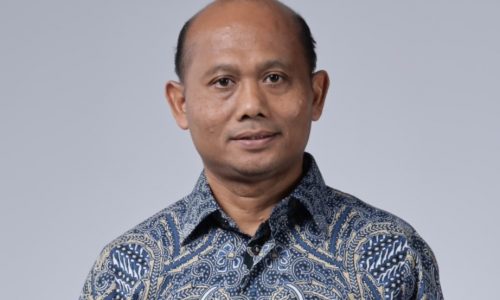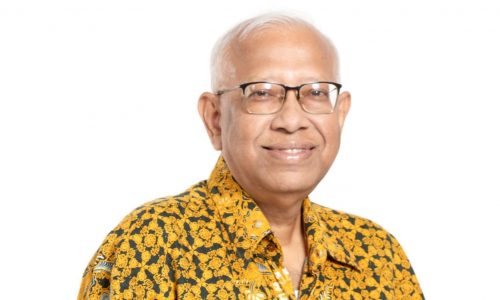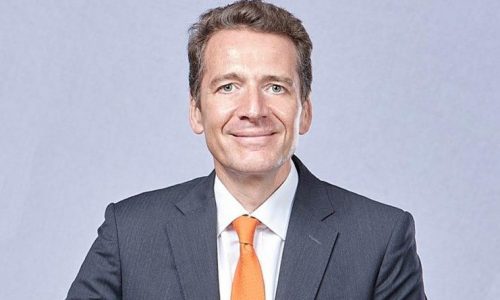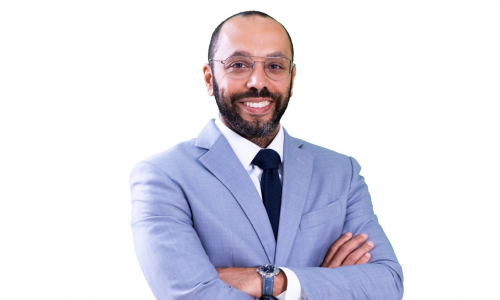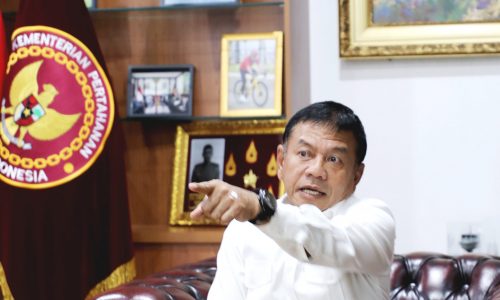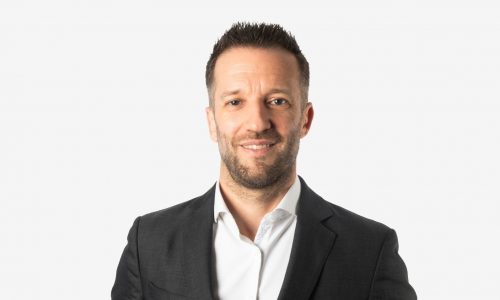Pandu Patria Sjahrir is the key-man, one of Asia’s and Indonesia’s most influential business leader. Currently, Pandu is the VP Director of PT TBS Energi Utama Tbk, Founding Partner of AC Ventures and Managing Partner of Indies Capital. Through this interview, Pandu has opened up to Indonesia Business Post on his ambition, his challenges in life and his perspective relating to Indonesia’s biggest challenges.
What is something about you that will surprise us?
I don’t know your perception of me, but I’m somebody who is very silly (laugh). I want to think I’m creative, but who knows? I like to learn a lot about history, I like to read a lot. But I’m also kind of an introvert. Believe it or not, I need time and space of my own, and I work out every day from 6 to 8. But I need my alone time..
What books do you read?
I read everything. I like to read magazines, like the Economist or FTs. I read a lot. I used to read a lot of blogs. I like to read about investment stuff, so anything investment, research reports too. Maybe if there is a favourite book I’ve read, it’s an old book called Grit by Angela Duckworth.
And why is it one of your favourite books?
It’s just about grit. It differentiates you from being good to being incredible. You know what, you’re doing something very ordinary. What I do is also very ordinary. If you want to do something at an extraordinary level, you’ve got to do it multiple times over and over and over. And the book says you’ve got to do it over 10,000 hours of doing the same thing for it to be very good or close to exceptional. Learning is one thing, but doing it is another thing, right?
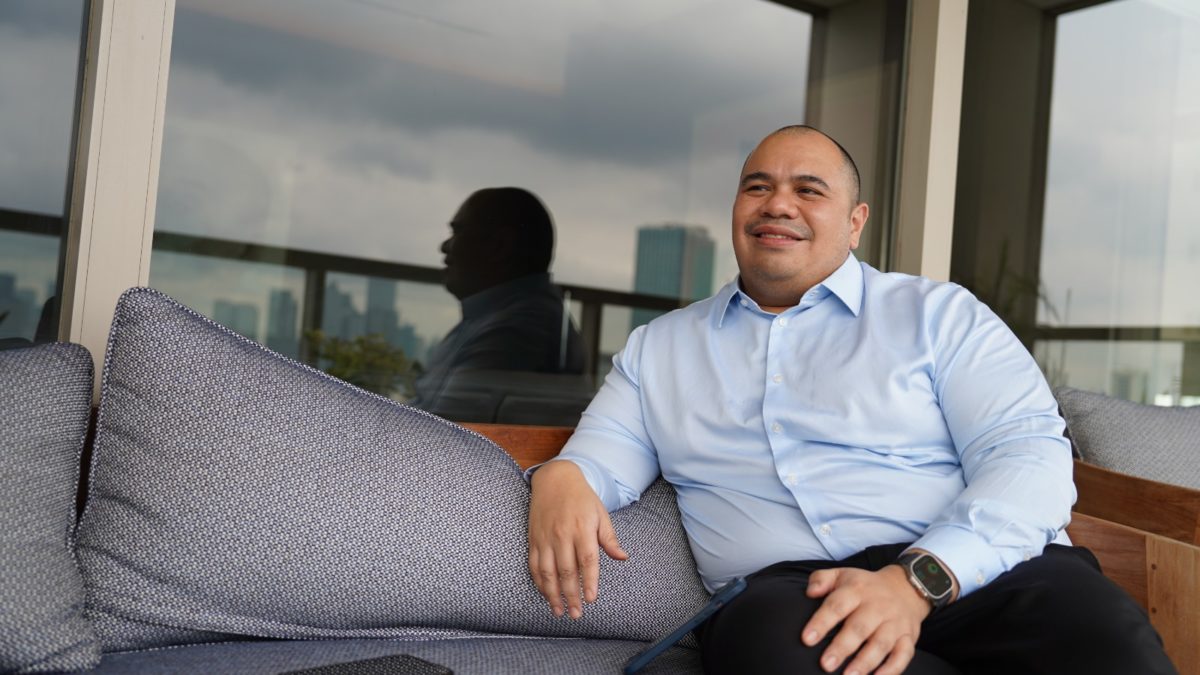
What has been the biggest highlight of your life and career so far?
In my personal life, having my daughter six years ago was a highlight. She’s awesome. In my business life, 2012 was a big highlight for me because it was the first time I took the company public (Toba Bara Sejahtera). That one obviously was awesome. And then obviously the ones that made my career as an investor, investing in all these tech companies that people know. I was involved when SEA Group got public in 2017, being the largest tech companies in Southeast Asia. Last year, I was involved in GoTo when the company became public as well. So I got the privilege to be investing in all these companies and then I built AC Venture in 2019, Indies Capital in 2017. And the story goes, you know… It’s going well but it’s still very new…
What’s your ambition for these companies?
So all these companies, I just want them to be the best in class for whatever they do. Not the biggest, just be the best. Meaning what? Serving its shareholders the best, giving the best risk/reward return and managing its customers and its employees very well, so people are satisfied working with us and building their careers with us. It’s simple, with that you probably will have a lot of good impact on the society you serve.
Any business we build should have a significant impact on the society we serve, such as Electrum, for example. With the joint venture (Electrum is a joint venture between GoJek and TBS Energi Utama) hopefully we will have a lot to give, a lot of positivity, not just in terms of the cash flow, but also the job it creates and to the environment that we’re in.
What keeps motivating you in your career to reach your goals?
I’m an insecure guy, I always want to be better. I’ve got the privilege because my parents were teachers, they taught me that. “Pandu, I will not give you everything. I will only give you the fishing rod, but I will never give you the fish”, which is true. So, I was never given an inheritance. My inheritance was the education my parents provided to me. It’s the only thing I’ve got that actually served me well because when my dad died early, I realized, oh my God, from an asset perspective or wealth perspective, we didn’t have much because he spent it all on politics back then. But I said, okay, shit, I got to start working real hard, right, to create my own money. And it’s something that it’s in my mindset that you have to work hard. And in Indonesia, it’s very simple to be successful. Number one, don’t cheat people. You have to be true to your word. Number two, have a bit of an ambition. Number three, work hard. Work very hard. Number four, Don’t be arrogant. When you have all that, you should be successful in whatever you do.
Then you just execute. For me, it’s all about execution. Just execute. Execute whatever it is that you do. You don’t have much time anyway every day. At most, you have 10-12 hours of work time, for each hour, you need to be focused on what you do. You’ve got to do things that give you a maximum impact. What’s the biggest impact you can do with your hour, with your time. The rest, you got to sleep and spend time with family and friends.
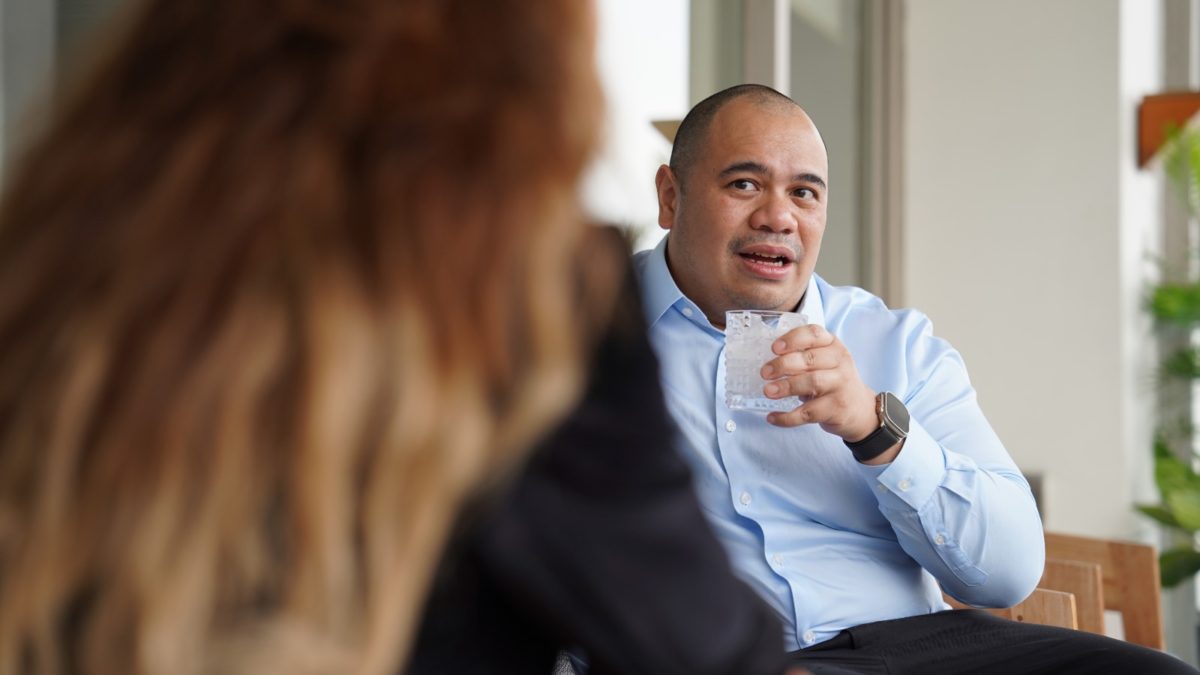
Wise advice, but what is your real, inner motivation building your companies?
Yeah, internal motivation comes from family. From my father, mother, but also from the things I went through. When my dad passed away, we really didn’t have anything. People don’t trust me on this, but we didn’t have much. We didn’t even own our house. We didn’t own it, really. We were renting it. My dad spent everything on politics. So I was like, shit man, what do we do? So we got to start building the business. My dad always reminded me, “I will not leave you with anything (money wise), but I’ll leave you with education, which is good. He paid for my undergraduate study and high school. But business school, I paid for myself.
What leadership skills do you find most useful?
Listening and empathy. You have to listen to what people are saying. Don’t think whatever you say is the right one. Most of the time, we try to hire people smarter than us, and for that, you have to listen, to trust their judgement.
How will you trust their judgement?
Through time. First, you give the benefit of the doubt. And if they deliver and give a good output, you trust them more. But if they don’t, then you know. It’s a hiring process. You’ve got to do the right hiring process, check their track record, etc. But the most important is character check. There are many smart people, but in terms of character, find ones that fit you well. As I said in Indonesia, try to find people that don’t cheat. Don’t cheat on others, don’t cheat on yourself. It was the most important.
We try to hire A+ people, excellent people, but people who can work with the team. These people have their ego, but the most exceptional people always have their ego controllable. These people know they have insecurity so they want to be better, they drive to be better.
How do you control the ego?
Very tough. I go through it too in my life. You’ve got to fail a bit, you’ve got to learn to fail, you’ve got to know that there’s always somebody above you, somebody better than you. So once you accept that, you’ll be able to control your ego. When you’re up, don’t think you’re too good. When you’re low, don’t think you’re too low. And treat everyone, with respect. That’s the most important.
Tell us more about the difficulties you are facing in your work and your professional life. What are the difficulties you have right now and how do you face it?
Managing people. Right now, on top of mind for me are people (management). Leading people and managing people, it’s not the same thing. One very senior person in my company, he’s really an outstanding performer. But all the stakeholders have problems with this person. How do I solve it? Do I maintain that person or do I let that person go? Because when you’re at the very top, to be honest, that’s the hardest place to be. You have to manage all different stakeholders, not just output driven, which is important, but you’ve got to be able to be very communicative and manage your own ego.
Leading people and managing people is not the same thing, you agree?
Of course, it’s very different. When you’re leading a business, you’ve got to be firm. You’ve got to have a clear sense of direction. And when you’re saying you’re hiring A plus, you’ve got to make sure that you give them enough trust and they have to believe in whatever it is you’re doing. It’s not just about the money, they also have to believe in the purpose of what you’re doing.
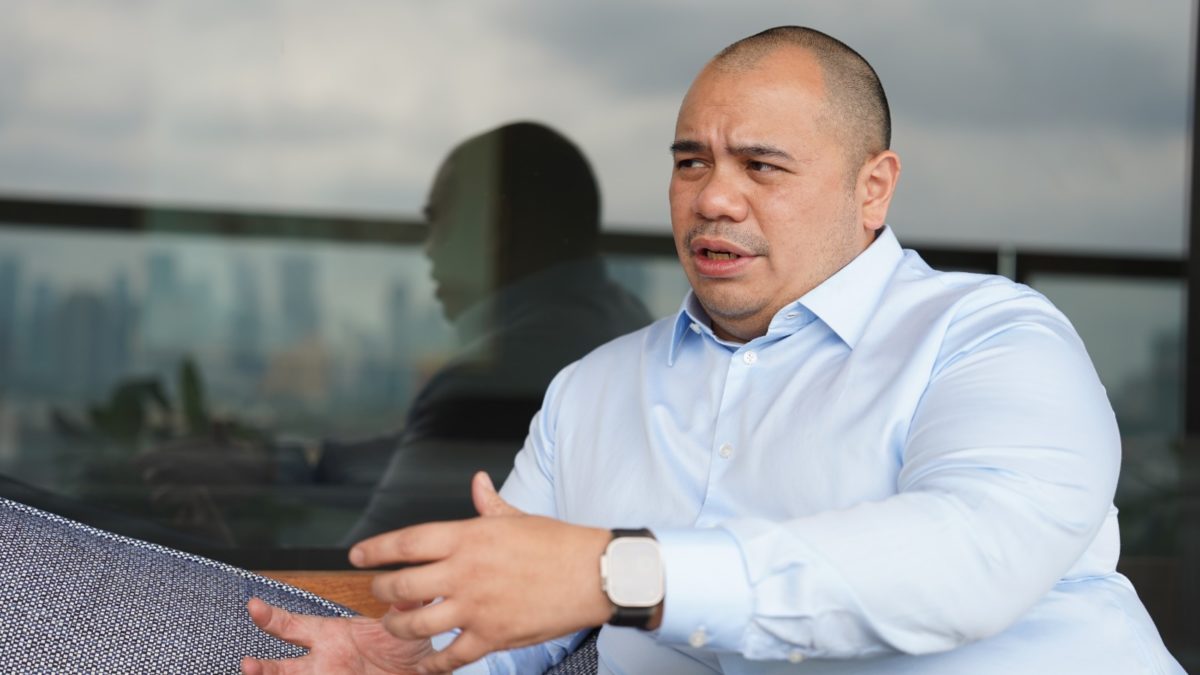
What was the hardest decision you have taken as leaders?
Many. The hardest one is a couple years ago I had to let go of one of my CEOs from one of our core businesses. That was difficult, because he had a problem with the shareholders. I’ve done this a couple of times in my life, three or four times. But you have to do this in business. It’s not about the money, it’s personal most of the time, you have to be able to manage that well and make sure it’s the right thing to do.
If what you’re doing is the right thing to do, it is also the best thing for that person. Because that person will also grow. Then try to be helpful, because a lot of times, business leaders think that the business is their baby, so they take it very personally. You can say, you know, we’re no longer doing business together, but maybe I can help you with other business?.. So yeah, that’s the toughest thing that I have to do usually.
Your company is your baby, too, right?
Yes, but I’m always saying from the very beginning that at the end, I want somebody to replace me. I always try to find the best people to replace me. I just want to be a shareholder and you give me the dividends. I’ve been very open, but trying to find that person is very difficult (laugh). Okay, who can replace me? Take it. You do a better job than me? Take it. But you have to be better than me. I just want to be a shareholder. I am okay. I’m being serious (laugh).
That’s hard.
It should be hard. If it’s easy, what’s the point?. But that’s the best way to set a business: when it’s no longer founders led but it’s institutional led. I think our business is still transitioning from being a founder’s led into institutional led. I want to be like, similar to what Astra did or Mandiri did. Whoever the CEO is, the institution is strong. I want to be able to build all the businesses on institutional led. It doesn’t mean that it’s going to be my family running the business, it is whoever’s best for the institution.
How do you manage to stay ahead as a leader in a competitive market such as Indonesia?
I don’t know. I think you’ll have to be focused on figuring out what’s next. You’ve got to be diligent in terms of finding information, figuring out what is the game changer for the next five to ten years, and focus on the next five to ten years idea. You have to be able to take all different information, put it into a thesis and execute on that thesis. Yeah, it’s easier said than done.
And what is next for your business?
For me, energy transition is a big deal. So I imagine investing into renewable, investing into waste management, investing into carbon credit. Obviously the big one is Electrum. We focus a lot on this applicability of energy transition.
For us, there are three parts of energy transition. One is applicability, which is obviously what we’re doing with Electrum. It’s when they change or transition into the electric vehicle. Number two is managing the externalities, such as air quality, carbon credit and the way of reusing it. Number three is about creating energy efficiency, so for every ton of coal, every liter of oil, how much energy output that you can do, so you can use less energy from the fossil fuel.
So those three things are what we’re doing in the business, we are very clear about this and we’re investing into this. This will be the big theme in the next ten years.
What do you think of the new capital?
The new capital, I think it’s a great idea. I think it’s where the business community should invest in. But I think it takes two to tango. The government also has to help with tax support. So we’re incentivized to move. I think it’s a great idea.
Do you think there are any other things that the government could do to improve business in Indonesia?
Indonesia is doing very well already. I think just focus on making it easy to establish businesses. I think the communication has been much better now and I think it is improving every year. So there’s a good idea from the leader to focus on transparency, focus on improving accessibility, focus on the execution, which is good for us investors, right?
Because capital moves very freely. So we have to fight for that capital. And thankfully, now Indonesia is improving every year for that fight for capital, which is good. I think it’s good.
What do you think is Indonesia’s biggest challenge?
Execution. So I think the vision is already quite clear. I think it’s now just really the execution and making sure when executing that ambition, there’s still good enough equality for its citizens.
And this is really important for any countries that are doing significant economic growth, because usually the disparity between the have and the have-not widened, so make sure we’re very focused on that so it doesn’t widen too much. Also, making sure there’s enough social safety net for the people that are displaced. So I think making sure we have growth without sacrificing too much on the equality plan, that’s very important.
And how do you envision Indonesia in 2030 ?
I think we will have a bigger economy. Hopefully we’ll be in the top ten or top twelve economic GDPs in the world. But again, I do hope that Indonesia in 2030 will also be more accessible to its citizens. You know, good health care for everyone, access to education, and changing the mindset of every Indonesian, how are we able to fight for it together.
Where do you see yourself in the next ten years?
I’ll be doing exactly what I’m doing now, hopefully becoming more impactful on the businesses that we do. So ten years from now, hopefully we’ll sit like this, but the businesses will have grown more, and grown more impacts, everything I told you has materialized, hopefully more than what we expected, and yeah be more impactful.
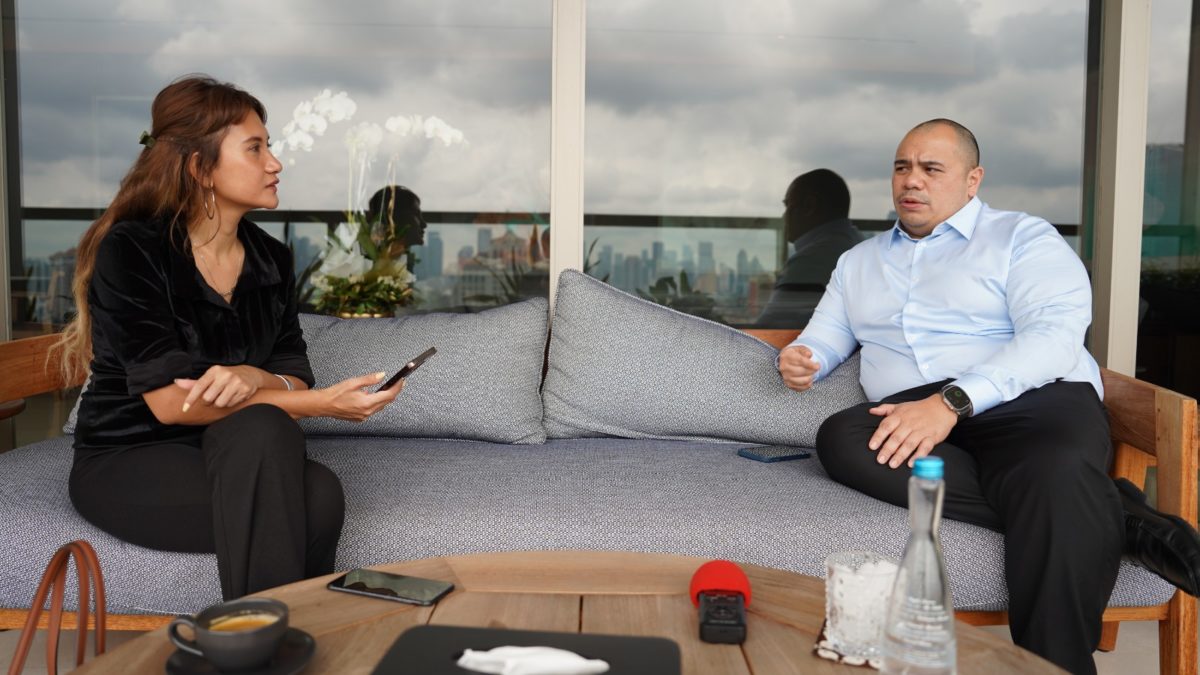
Do you see yourself in the political scene in the next 10 years?
For me, I really like the business side of things, I just like executing this. You know, from the business side too, you can give many impacts.
What matters is in the next seven or eight years, the relationship between business and government has to work hand in hand, because at the end you need both, and it’s also a check and balance between both. Both have to grow very well.
So I think my job is to bridge that and be able to grow both: the professionalism in the business side, which I think is grown well in Indonesia because if you look at the top business today, it really focuses on the output and being professional.. and the government side seems to change too, amongst the ministers, the general directors. They are now more focused on output and how fast they can do things and that’s a good thing: how will we in seven or eight years from now be better than Singapore, especially on the government side.
Do you have any international ambition for Indonesia?
Last year, we hosted the G20 Summit. This year, we’re chairing the ASEAN summit. I think Indonesia is making sure that we’re always politically stable, focused on our people and also on a regional level. How can we create ASEAN to be one of the pillars of hope for the world, because I think ASEAN communicates well together and can be a great example of what peace can be for the rest of the world.
What do you think you’re calling in life?
You’re asking such a hard question (laugh). My calling is just to be useful. Be a useful person.
Do you think everyone has its calling?
Yes, I’m sure. It’s just up to them whether they believe it and execute on it. Everyone has a calling.
Five things where should I invest my money?
Number one, on your education. I always believe in education. So always educate yourself. Number two, on your relationship and friendship, because you are as good as the five people you’re closest with. They can bring you up or they can bring you down. You can bring them food, take them to a restaurant or take them on a trip, because in a trip you can really tell people how they are and you’ve got to know the person too, you’ve got to know whether they’re the one for you to help elevate you. So, invest in that relationship. If you have business, invest in a business you know, focus on that and double-down on that business. Invest in a business that you have and you’re passionate about.
What advice would you give to foreign companies starting their business in Indonesia?
In the end, you probably will need a local partner here. Focus on partners that think like you, that have the same vision of what you want to do. Don’t just say ‘oh there’s big companies here and there, I’ll partner with you because then I’ll make money’…
You have to ask yourself, are you looking at this country as a short term investment or a long term investment? There’s different partners for both, and from there, meet them. Not once, but many times just like any partnership. But focus on that one potential partner. If it does make sense, you go with them. If it doesn’t, move on to the next one. But don’t spread your wings out. I mean, out of all ten people, just focus on one or two that can execute things to what you believe in.
What are the industries or expertises that Indonesia needs right now?
Anything technology, deep tech related, high tech. I think that’s what Indonesia needs. I think anything related to science, technology, engineering, maths, those that have deep knowledge into that.
What’s one thing you can keep talking about for hours?
I like to talk about people a lot (management/emotional intelligence). I like to talk about investment.
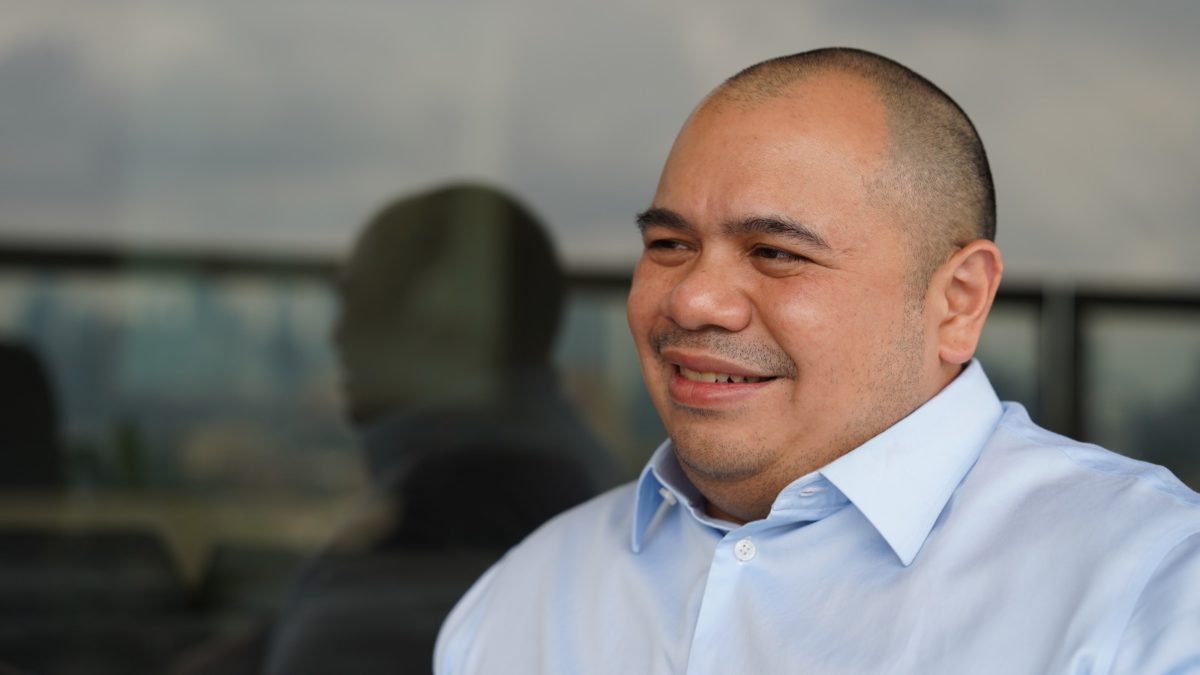
If you could have dinner with three people living or deceased, who would they be?
I don’t know. I want to have dinner with my late dad (Dr. Sjahrir, a prominent Indonesian political economist & Economic Adviser for Susilo Bambang Yudhoyono). Now that I’m in a different stage of life I want to see him, ask him like hey what do you think about this and that… And then maybe my granduncle too (Sutan Sjahrir, the first Prime Minister of Indonesia), about his life story, that would be interesting. Lastly, I think it would be with my uncle (Luhut Binsar Pandjaitan, current Coordinating Minister for Maritime Affairs and Investment). It’ll be fun. They have done well with their lives. My uncle has done very well with his life too. I’m trying to figure out if there is a commonality of how they think, right?
It’s a family dinner then?
Yes, it’s all in the family (laugh).
What are the qualities you most admire in a person?
Hard work. Grit. I get very excited when people work very hard. I really like and admire that quality.
Another quality?
Humility.
What is art for you? What type of art do you find most interesting?
Art is an expression. It’s a feeling, it’s an expression of how I feel at a moment of time. I like paintings. I’m trying to figure out what I like but I like Srihadi (Srihadi Sudarsono), I like Indonesian old artists. Well, I’m still figuring out my own taste, but I’m buying, collect things. I like it.
Do you believe in fate?
Sure, I believe in fate. We can work as hard as we can and some part of our life journeys are destiny. But some may have been predetermined. It’s okay, learn to accept, smile, move on.
A lot of people are impressed by you. How to be an inspiring leader?
How can you be you? How can you believe in yourself? You’ve got to be a leader with your own self first and foremost.



